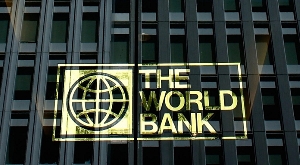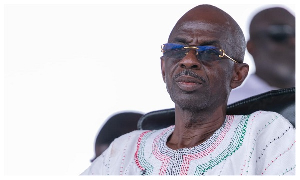A World Bank Report on Country Policy and Institutional Assessment (CPIA) for 2023 has revealed that Ghana scored 3.4 in the overall assessment.
The report focused on countries in West and Central Sub-Saharan Africa (SSA) under the International Development Association (IDA).
Among the countries assessed, Ghana’s performance in key areas such as Economic Management, Monetary and Exchange Rate Policy, Fiscal Policy, Debt Policy and Management, Structural Policies, Trade, Financial Sector, Business Regulatory Environment, Policies for Social Inclusion and Equity.
Others include, Gender Equality, Equity of Public Resource Use, Building Human Resources, Social Protection and Labor, Policies and Institutions for Environmental Sustainability, Public Sector Management and Institutions, and Property Rights and Rule-Based Governance.
Ghana received varying scores across different indicators, with notable strengths in areas such as Gender Equality, Social Protection and Labor, Transparency, Accountability, and Corruption in the Public Sector. However, there were areas identified for improvement, including Debt Policy and Management and Quality of Public Administration.
The assessment in key policy areas include Economic Management 2.8; Monetary and Exchange Rate Policy 3.5; Fiscal Policy 2.5; Debt Policy and Management 2.5; Structural Policies 3.5; Trade 4.0; Financial Sector 3.0; Business Regulatory Environment 3.5 and Policies for Social Inclusion and Equity 3.7
Other key policy areas, had notable scores such as Gender Equality at 4.0, Building Human Resources at 4.0, and Policies and Institutions for Environmental Sustainability at 4.0, reflecting the country’s commitment to advancing these important issues.
The World Bank’s CPIA for West and Central SSA provides a comprehensive analysis of the policy environment in the region, offering insights into the progress made by countries like Ghana in key policy areas.
This year’s CPIA Africa report focuses on reforms across policy areas covered by the Country Policy and Institutional Assessment (CPIA) that support private sector growth and identifies policy trends in Sub-Saharan Africa that made a difference in supporting private sector development in 2023.
The report highlights key trends and best practices to guide policy makers and international investors on the policy developments in the region, following the World Bank’s annual CPIA of countries eligible for International Development Association (IDA) assistance.
This assessment is based on the combined knowledge and monitoring of experts across the World Bank, as local teams in each country submit score recommendations in line with their ongoing engagement with governments in the region and monitoring of the development progress in each country, while global teams and management provide multiple stages of review.
Commenting on the report, specifically on Ghana’s performance the Chief Economist with the World Bank for Africa Region, Andrew Dabalen said Ghana was previously a big reformer but has experienced some economic management issues, particularly with debt management.
He commended Ghana for spending well on education, health, and social protection programmes targeting vulnerable populations during difficult times.
Mr. Dabalen further advised Ghana to maintain fiscal sustainability while implementing the agreed-upon debt management strategies. To enhance business efficiency, he said expansion of market reach, and improving public sector services is key.
However, the report made recommendations for the region to help spur growth. It stated that the expansion of information technology in the region has the potential to bring about significant structural changes across economic activity.
He added that access to high-speed internet in Africa has been found to increase employment opportunities, boost output per worker, and reduce poverty. Additionally, digital infrastructure presents an opportunity to address policy constraints, including corruption reduction and domestic revenue enhancement.
Again, on intra-Africa trade, the report mentioned the AfCFTA could transform the trade landscape for the region toward a more diversified and higher-value export composition.
“While estimates vary in their predictions of the potential gains from the AfCFTA and the country composition of such increases in trade are likely to be highly heterogeneous, the predictions are generally in the range of an increase in intraregional trade of between 30 and 60 percent over the next decade.
In this context, the AfCFTA and increasing access to digital services can potentially fundamentally transform the regional economy. These trends combine to address binding constraints to private sector growth, improving the potential for integrating regional markets and expanding opportunities for better economies of scale,” the report stated.
Business News of Thursday, 18 July 2024
Source: thebftonline.com
Overall CPIA score stood at 3.4 – World Bank report on Ghana
Entertainment












